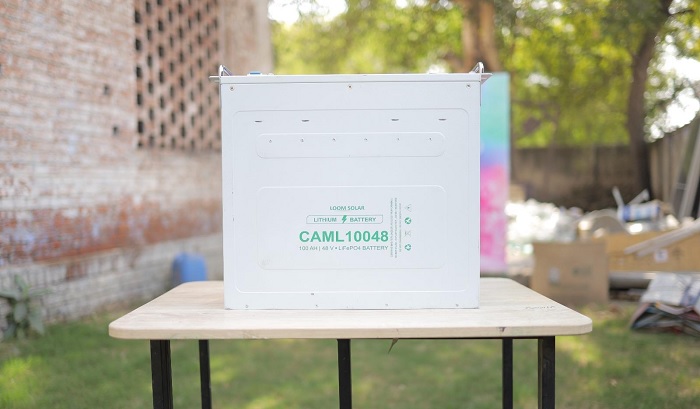Solar energy has gained immense popularity as a clean and renewable source of power. With advancements in technology, solar batteries have emerged as a crucial component of solar energy systems. In this guide, we will delve into the world of solar batteries, exploring their significance, and advantages.

Understanding Solar Batteries: Advantages, Costs, Government Schemes, and everything else
Understanding solar batteries:
Solar batteries, also known as solar energy storage systems, store excess electricity generated by solar panels during the day for use during periods of low sunlight or at night. These batteries harness the power of the sun and provide a consistent energy supply, reducing reliance on the electrical grid.
Advantages of solar batteries:
- Energy independence: Solar batteries empower homeowners to become self-sufficient by storing surplus solar energy for later use, even during grid outages.
- Increased energy utilization: By storing excess energy, solar batteries ensure maximum utilization of solar power, minimizing wastage.
- Cost savings: Solar batteries reduce electricity bills by allowing homeowners to consume stored solar energy during peak-rate hours when electricity costs are higher.
- Environmental benefits: Solar batteries contribute to a cleaner and greener planet by reducing reliance on fossil fuels and minimizing carbon emissions.
Why choose lithium batteries:
Lithium batteries have emerged as the preferred choice for solar energy storage due to several reasons:
- High energy density: A Lithium battery offers a higher energy density, allowing for more storage capacity in a compact form.
- Long lifespan: Lithium batteries have a longer lifespan compared to other battery chemistries, making them a cost-effective option in the long run.
- Depth of discharge: Lithium batteries allow for a deeper discharge without affecting their lifespan, maximizing usable capacity.
- Faster charging: Lithium batteries have a shorter charging time, enabling quicker replenishment of stored energy.
Cost considerations:
The lithium battery price for solar energy storage varies depending on factors such as capacity, brand, and additional features. On average, a lithium battery for residential use can cost anywhere between $500 to $1500 per kilowatt-hour (kWh). While the upfront cost may seem significant, the long-term savings on electricity bills make it a worthwhile investment.
Government schemes and subsidies:
To promote the adoption of solar energy systems, governments often provide various schemes and subsidies. These incentives aim to make solar batteries more affordable for homeowners. Specific schemes and subsidies vary by region but commonly include tax credits, rebates, and low-interest loans. It is advisable to research and check with local authorities or solar energy agencies to explore the available benefits.
EMI facility:
LoomSolar, a leading distributor in the solar energy industry, offers an EMI (Equated Monthly Installment) facility to purchase solar batteries more accessible. This facility allows customers to spread the cost of the battery over a specific duration, making it more affordable and budget-friendly.
Conclusion:
Solar batteries play a crucial role in optimizing the utilization of solar energy and providing a reliable power supply. With advantages such as energy independence, cost savings, and environmental benefits, solar batteries, particularly lithium batteries, have become a popular choice for homeowners.
With a wide range of solar batteries and related equipment, LoomSolar provides expert guidance and excellent after-sales support to ensure a seamless experience for customers. Embrace the power of solar batteries and embark on a sustainable energy journey today!
Add a Comment